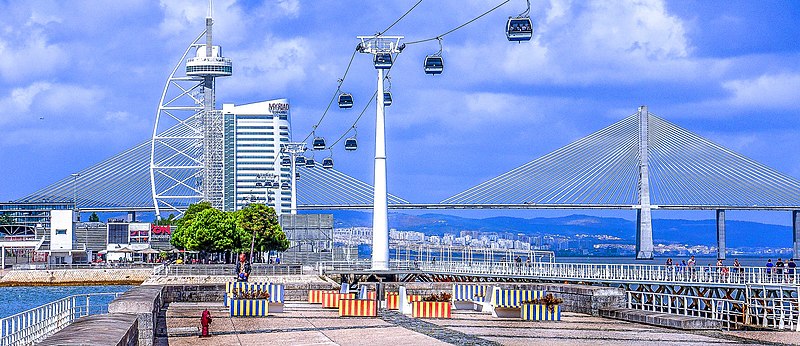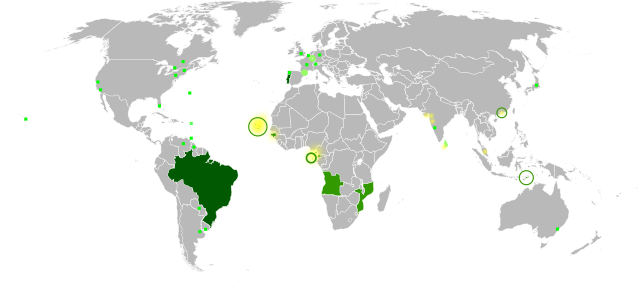
Let’s begin by taking some quick virtual tours (Click on the country name)
- Discover the beauty of Portugal
- Discover the beauty of Fatima in Portugal
- Visit Europe. Discover Portugal
- Visit Portugal
- Discover the beauty of Brazil
- Visit Brazil. Live unforgettable experiences. Amazing places to visit.
OUR LESSONS

Are you planning to visit Lisbon, Fatima, Porto, the Algarve, Rio de Janeiro and other regions of Portugal and Brazil?
With our online Portuguese lessons, you will learn 200 key phrases and 1,000 of the most common words in Portuguese. Try our 60 free online lessons.
Talking about yourself, family and friends
L 1: Meeting new people: greetings, introductions, farewells. Titles
(alphabet; parts of speech; irregular verb ‘to be’)
L2: Talking about your family, relatives and friends
(personal pronouns; irregular verb ‘to have’)
L3: Talking about countries, nationalities and languages
(simple present tense of verbs; prepositions ‘from’ and ‘in’)
L4: Talking about the weather and the seasons
(the simple present tense; the definite articles)
L5: Talking about clothing, accessories, fashion and appearances
(colors; qualifying adjectives; the possessive adjectives; the gender of nouns and adjectives)
L6: Talking about your home
(indefinite articles; the single and plural of nouns; shapes. type of housing; rooms; furniture)
L7: Stating your age, address and phone number. Telling time
(cardinal numbers; directions; prepositions of location and direction; imperative; giving directions; interrogative pronouns)
L8: Talking about the days of the week and the months of the year. Appointments
(ordinal numbers; interrogative adverbs)
L9: Talking about your leisure time and hobbies. Routines
(adverbs; frequency adverbs; reflexive verbs)
L10: Talking about key life events
(the simple past tense; births, engagements, weddings, anniversaries, deaths)
Talking about your community
L11: Talking about education
(imperfect tense; comparative and superlative adjectives)
L12: Talking about your work
(future plans; simple future tense)
L13: Talking about religion
(types of nouns; collective nouns; capitalization)
L14: Al Cinema/At the cinema
( )
L15: In banca/At the bank
(direct speech; the conditional)
L16: At the post office
(vorrei /conditional)
L17: At the library. At the bookstore
(pluperfect tense)
L18: At the cafe. At the restaurant. Cuisine
(polite requests)
L19: At the market
(measurement)
L20: At the pharmacy. At the doctor. At the dentist. Health
(modal verbs)
Introduction to Portugal and Brazil
L21: At the airport
( )
L22: Talking about culture: art, architecture and sculpture
( )
L23: Taking about cars
( )
L24: Talking about emergencies
(police, fire, ambulances, natural disasters)
L25: Talking about famous people
( )
L26: Talking about festivals
( )
L27: Talking about geography
( )
L28: Talking about government
( )
L29: Talking about history
( )
L30: Talking about the different types of hotels
( )
L31: Talking about some famous museums
( )
L 32: Talking about music
( )
L33: Talking about some national symbols
( )
L34: Talking about the performing arts
( )
L35: Talking about shopping
( )
L36: Talking about the media
( )
L37: Talking about sports
( )
L38: Talking about the different types of tourism
( )
L39: Talking about transportation
( )
L40: Talking about wine and other alcoholic drinks
( )
BILINGUAL READINGS
- Agriculture
- Culture
- Economy
- Energy
- Fashion
- Industry
- Literature
- Mass media
- Security Forces and Military
- Wildlife and marine life
RESOURCES
- Attend a virtual mass at the Sanctuary of Fatima, Portugal (with sub-titles in Portuguese)
- Pray the Rosary in the Chapel of Apparitions, Portugal (in Portuguese)



